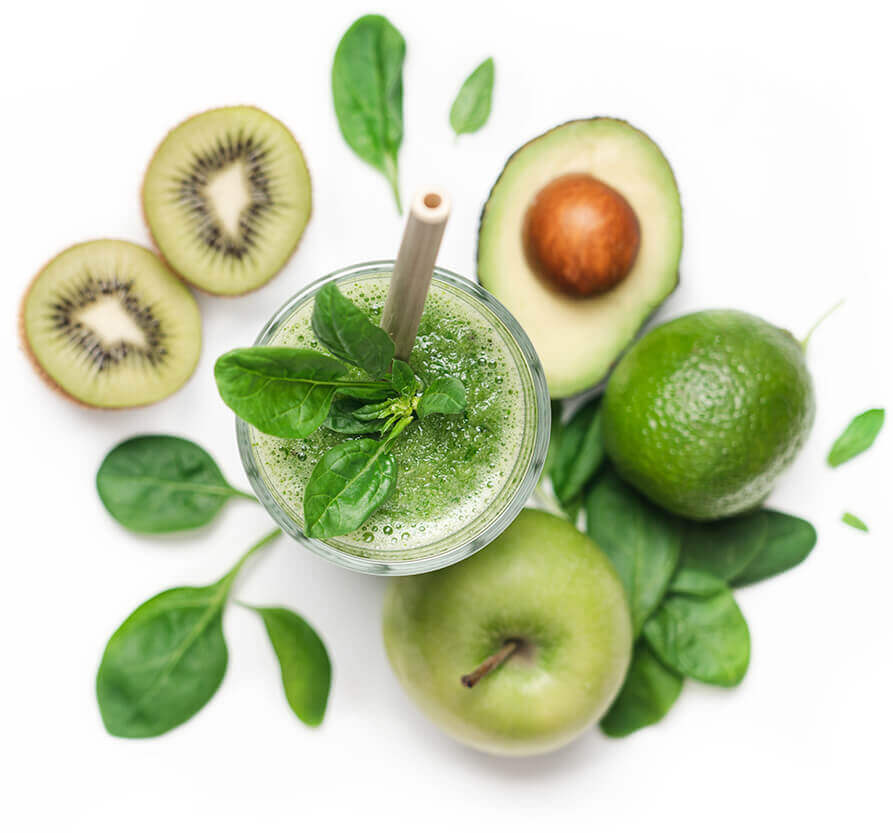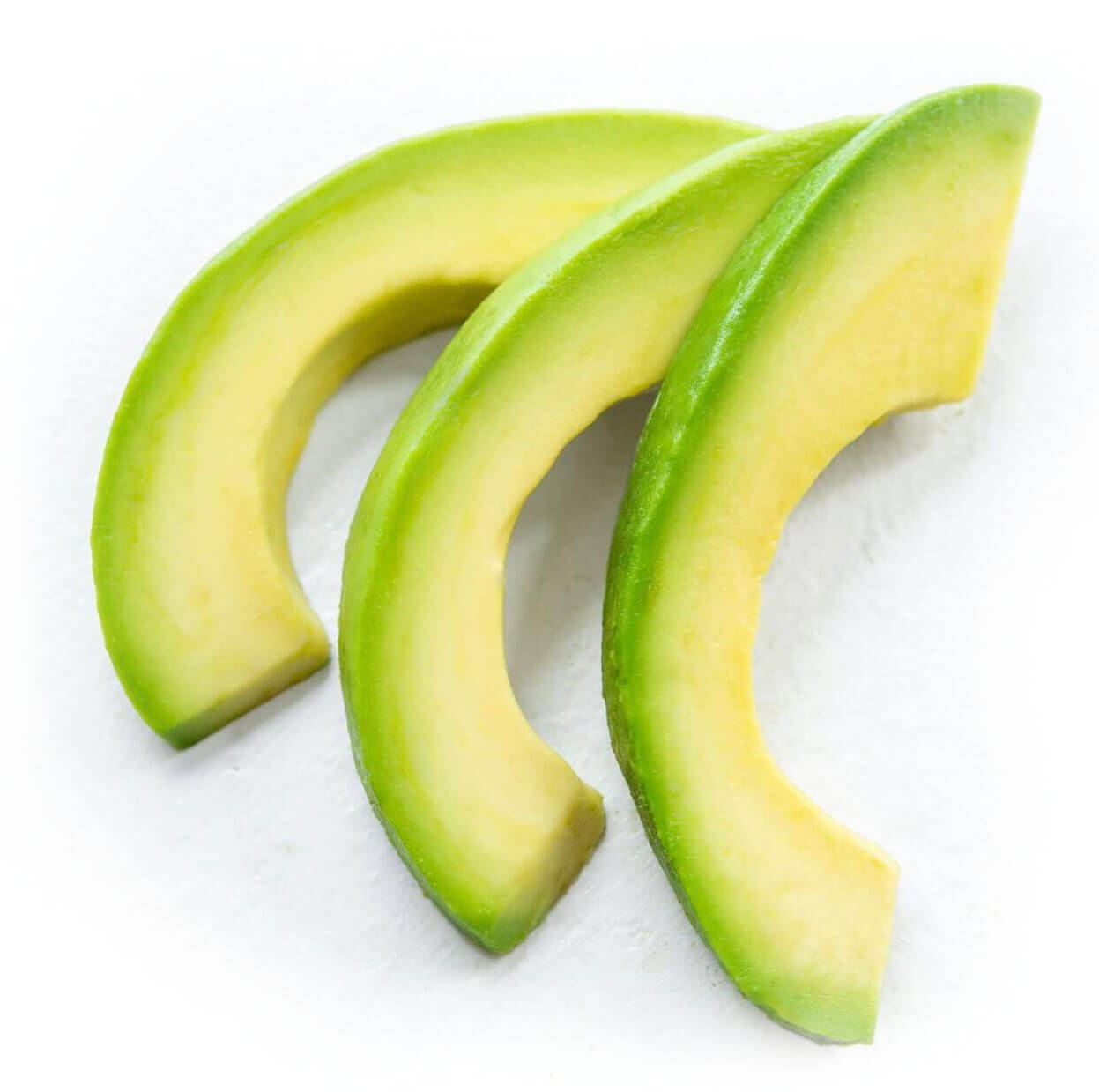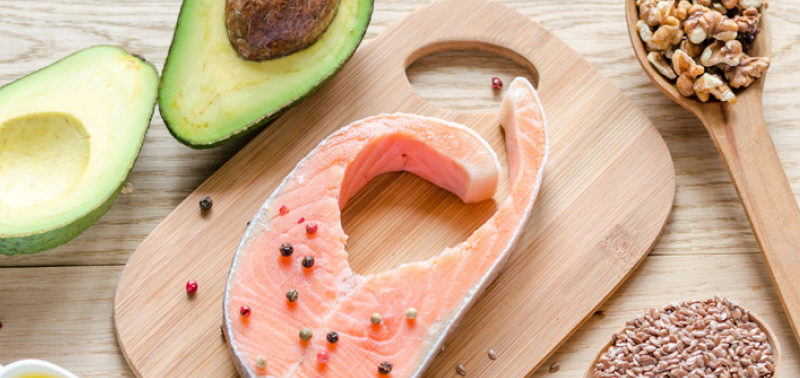The Dietary Guidelines for Americans recommends that you choose foods that provide more potassium, dietary fiber, calcium, and vitamin D, which are nutrients of concern.
Potassium is an essential mineral and an electrolyte that helps muscles contract and regulates fluids and mineral balance in and out of body cells. Low potassium intakes can increase the risk of illness and may be involved in hypertension and stroke, kidney stones, bone health, blood glucose control, and type 2 diabetes.
In recent years, potassium deficiency has become more common among Americans, leading many to wonder how to get more potassium in their diet. If you’re one of them, avocados just might be the secret weapon you need.

How Much Potassium is in Avocado?
With about 250 milligrams of potassium, or 6% DV per 50g serving, avocados can help boost your potassium intake and support your heart health, muscles, and overall wellness. Not only that, but each serving of avocados also comes with 3g of fiber, 6g of good fats, nearly 20 essential vitamins and minerals, and is free of cholesterol, sugar and sodium. It’s easy to add them to your diet and enjoy their tasty benefits. Avocados are a great way to get some of your daily potassium needs, whether you treat yourself to avocado toast at breakfast or a tasty smoothie after lunch.


How Much Potassium is in Avocado vs. Banana
Bananas are well-known for their potassium content, but avocados provide more potassium per gram. A medium banana (about 118g) contains approximately 422 milligrams of potassium, while an average avocado (150g) offers around 708 to 760 milligrams of potassium for a single avocado, and 250 mg for a single serving (50 grams or one-third of a medium avocado). This means that avocados may be a more concentrated source of potassium. Both foods can help contribute to your daily potassium needs, with avocados providing roughly 6% of the Daily Value per serving. Including both in your diet can support overall health, but avocados offer additional benefits such as healthy fats and fiber.

Why Your Body Needs Potassium
Potassium is an unsung hero of nutrition, playing an essential role in multiple different bodily functions. Here are the most important ways your body uses potassium:
If you think of potassium when you’re about to work out, you’re on the right track. Potassium plays a crucial role in exercise performance by helping maintain proper fluid balance, muscle function, and nerve signaling. Along with sodium, potassium acts as an electrolyte that helps muscles contract and balances the fluids and minerals in your body’s cells. When you sweat during exercise, you lose both water and key electrolytes, including potassium. Replenishing these electrolytes is essential to prevent dehydration, maintain muscle contractions, and avoid cramps. Ensuring adequate potassium intake before and after your workout helps your body recover, reduces the risk of fatigue, and keeps your muscles functioning properly.
Potassium is vital for many key functions in the body, from maintaining heart rhythm and healthy blood pressure to supporting muscle contractions and nerve signaling. Whether you’re focused on everyday wellness or looking to enhance exercise performance, ensuring you get enough potassium from nutrient-dense foods like avocados can make a significant difference. Since potassium needs can vary based on individual health factors, it’s always a good idea to consult with a healthcare provider to ensure you’re meeting your specific requirements and supporting overall well-being.
Benefits of Potassium-Rich Diets
Potassium can be found in a variety of foods like vegetables, fruit, seafood, and dairy products. Avocados, in particular, offer 250 milligrams, or 6% of DV, per 50 gram serving.
Following a potassium-rich diet can offer a wide range of health benefits:
Increasing your potassium intake is an investment in your long-term health. On the other hand, low potassium intake can increase your risk of developing hypertension, stroke, kidney stones, deteriorating bone health later in life, high blood glucose levels, and type 2 diabetes. With the help of tasty avocado recipes, it’s easier than ever to put more potassium in your diet. So, go ahead and add a little more avocado to your meals—your body will thank you!
Is It Possible to Have Too Much Potassium?
For most people, no. Your body naturally gets rid of any excess potassium via your urine, so barring any medical conditions, it’s unlikely that your potassium levels will fall out of balance. It’s much more likely that you have a potassium deficiency, in fact.
That said, people with kidney issues or taking certain medications may be unable to regulate potassium levels as easily. Blood pressure medications can change the way your body processes nutrients like potassium, and decreased kidney function makes it more difficult for your body to flush it out through your urine. Talk to your doctor about how much potassium is right for you.





